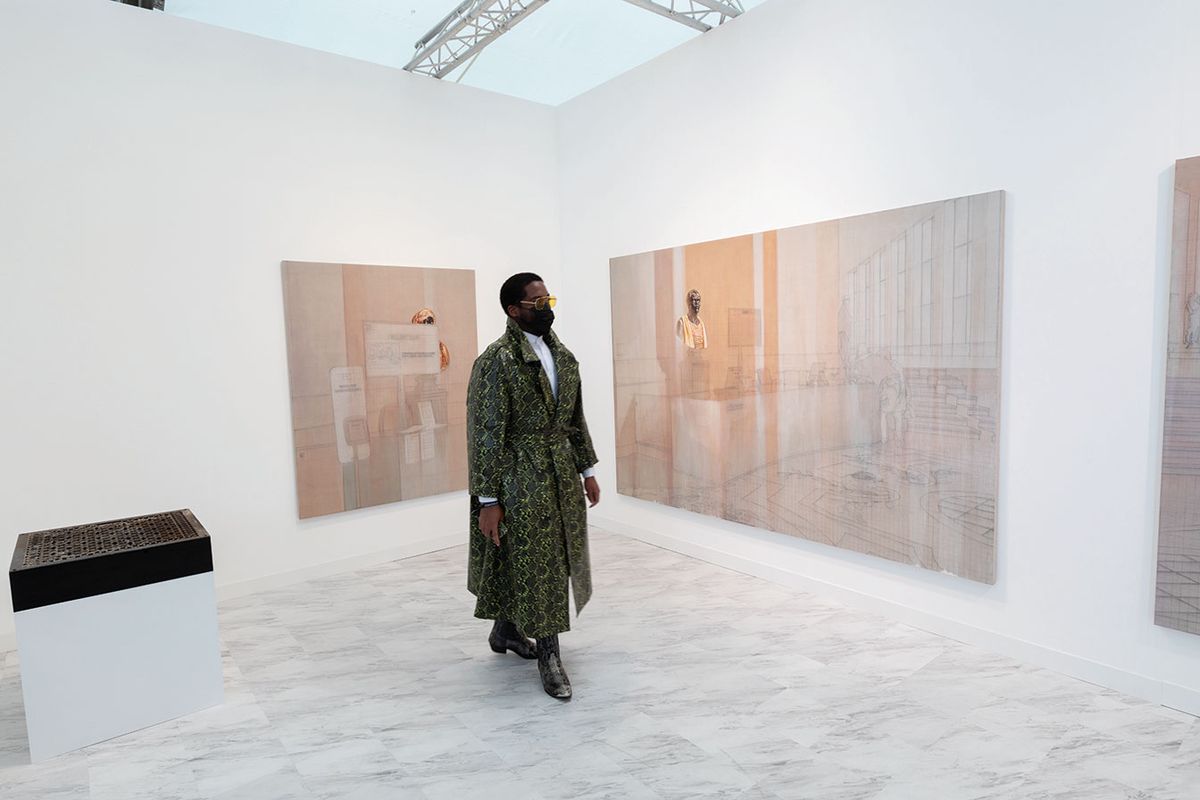Unworlding, a new section of Frieze London examining ideas of collapse and rebirth, is perhaps the kind of title you might expect from a biennial. And the works on show here, the vast majority by very young artists, are more radical and experimental than in other parts of the fair—but that is not to say they aren’t selling.
At Berlin’s Tanya Leighton gallery, Esteban Jefferson’s Petit Palais series of paintings, installed together with sound and video pieces, had all sold by Friday morning at prices ranging from $25,000 to $55,000. The canvases focus on two busts of unidentified Black people installed behind the ticket desks at the Petit Palais museum in Paris. Jefferson has spent the past three years researching the 17th-century sculptures, which the museum had mistakenly dated to the 19th century. “Esteban wanted to give the sculptures the space they deserve,” says a spokeswoman for the gallery.
Painting is king at Frieze London this year, but few works are as super-sized as Natacha Donzé’s apocalyptic canvases, which had almost all sold out at the stand of Paris gallery Parliament. The Atlas Polyptych (2021)—Donzé’s largest work to date, at 10m long—found a home with a Middle Eastern foundation for €28,000. Taking inspiration from sci-fi movies, video games and scientific imagery, the painting is populated by will-o’-the-wisps and flies and represents the artist’s take on Atlas, the Greek Titan god who was responsible for bearing the weight of the heavens on his shoulders.
The Berlin- and Beijing-based gallery Hua International marks its first showing at Frieze with a multimedia installation and performances by Fanny Gicquel, who has never exhibited at an art fair before. Two pieces sold to collectors—one German, one Greek—for £1,700 and £6,800. However, at £15,000 for the stand (including installation), the gallery is unlikely to cover its costs.
No matter: a gallery spokeswoman says that participating in Frieze is still “important for positioning and deepening our relationship with Cédric Fauq”, the curator of Unworlding and chief curator of the CAPC museum in Bordeaux. “It has also allowed us to finally close sales with collectors we’ve been talking to in Germany who were waiting for the fair experience to seal the deals.”


